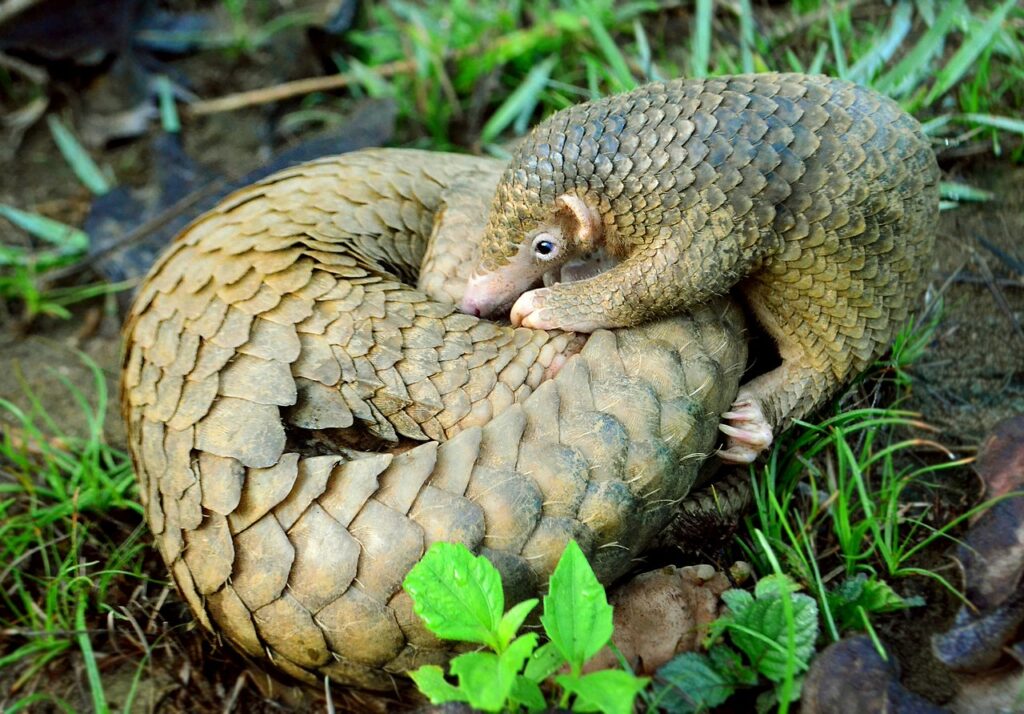The illegal trade of pangolins is having an increasingly destructive effect on this fascinating and unique species of animals. As one of the most trafficked wild animals in the world, they are at an alarming risk of extinction, and the effects of their illegal trade are beyond just the species.
Background
Pangolins are mammals of the order pholidata from the extant family Mindae. They are found both in Asia and Africa. In addition, they are mammals known to have layers of protective keratin scales covering their skins. Also, some live on the ground in the burrow, and some live in the trees.
Brief history of Pangolins
The Pangolin trade is centuries old. It started in 1820 when the then-Indian governor gifted King Goerge II with a coat made from pangolin scales. Hence, this led to a ban on pangolin trade by the convention on international trade in endangered species in 1975. But, this did not stop the illegal trade of pangolins in the black market. Therefore, making pangolins are the world’s most trafficked mammals accounting for almost 20% of illegal trade.

China love of Pangolins
China is home to the black market of pangolins. Before 2014 the estimated amount of pangolins trafficked was about a million, all exported to Asia, particularly in China. It is because china considers pangolin scales and other parts for medicinal remedies. The pangolin’s meat is a prized delicacy in China and Vietnam. In China meat is believed to have nutritional value aiding kidney function. In China, pangolin scales are for medicinal purposes for stimulating lactation and skin diseases.
Effect of illegal trade on pangolins
As pangolins are nocturnal creatures, they are largely unknown to the public, but face immense poaching pressure due to their perceived medicinal value. Demand for their scales and other parts with no scientific proof to back up the health benefits, has made them highly valuable and sought after on the black market. Poaching has drastically decreased the number of wild pangolins and has pushed them close to the edge of extinction.
Unfortunately, the effects of their illegal trade go beyond the species itself. Their illegal harvest causes a significant disturbance in the fragile environs they inhabit. Their unique habits, including digging deep holes and mounds, disperse the nutrients within the soil, and increase soil health, creating new living space and resources for other animals. Additionally, they help spread and disperse the seeds of the plants they eat, which supports healthy forests.
The economical aspect of this illicit activity also must be considered as economic losses for conservation management come as a direct result of illegal activity and this has significant impacts on legal businesses who are providing such products and services in the pangolin trade.
Conclusion
It is clear that illegal trade of pangolins has immense and devastating impacts, not only on the species itself, but also on the fragile ecosystems it lives in. The pangolin trade has to be brought to a complete stop in order to save the species from becoming extinct. Education, law enforcement, and collaboration between countries, organisations and people are key elements in the fight to stop pangolin poaching and trafficking. Together, we can make sure that these fascinating animals continue to live on, without being threatened by illegal trade.
Help us help them! Think Wildlife Foundation is a non profit organization with various conservation initiatives. Our most prominent campaign is our Caring for Pari intiative. Pari is a rehabilitated elephant at the Wildlife SoS Hospital. 25% of the profits from our store are donated to the elephant hospital for Pari. Other than buying our wonderful merchandise, you could donate directly to our Caring For Pari fundraiser.
Written by: Hannah Ashirawi Osiyah
